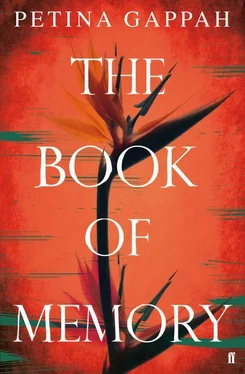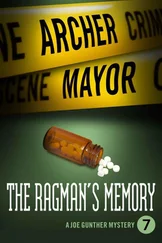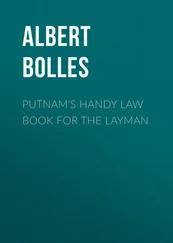Behind me was Alexandra. I could not see her, but I could feel her gaze on me, burning me with the heat of her hatred. After giving her evidence, she sat on her own, on a bench behind the journalists. She was the only witness. Beyond her statement, there was no other evidence. There were no forensic reports, and no post-mortem: the last pathologist had long left the country. The signed confession that the prosecutor produced sealed my fate.
The judge concluded that I was guilty of the crime that I was charged with, a cold and calculated murder: an unnatural act for a woman. The motive didn’t matter. The law, the judge said, is concerned only with action and intention, with the necessary combination of the actus reus and the mens rea . Was the mental element present, was there an intention to kill, and did the intention to kill translate into the action of killing a human being who was alive at that time? Both elements were present in this case.
The deceased’s own sister, a competent and credible witness, had seen the accused with her own eyes, dumping the body of the deceased into the pool. The demeanour of the accused told against her, the judge said; she had been particularly remorseless and cruel.
The relationship between the accused and the deceased was unclear, but it was not necessary to go into the exact nature of that relationship. What was beyond question was that the deceased had left the accused his house in his will, and his money. So the accused had also acted out of greed; she had killed for money that she would have inherited anyway had she been happy to wait for the natural course of events.
The accused had committed murder, and he had not been able to find any extenuating circumstances. He could not discount that the accused had confessed, thus saving the state from wasting valuable resources to prove what was essentially an open-and-shut case. In any other circumstances, that confession would have gone some way to mitigating the sentence. But it was important to send a message to the world that this country did not condone violence. The only competent sentence he could impose under the law, and in view of all the circumstances, was the death penalty.
*
Lloyd was dead when I found him. I had spent the day at the Archives. I reached home around seven in the evening. His car was in the garage, but he was not in his study, or the library or the living room. I called out his name, but I met only silence. I thought he might have gone to bed early. When I found him, I did not understand immediately what I was looking at. The naked body, dressed only in yellow socks, the plastic bag around his face — but it made no sense to me then.
It is ridiculous, the tangentially connected, orphaned thoughts that come to you in a moment like that. ‘He died with his socks on’ was the first thought that came to my mind. Hysteria and shock then took over. I burst into tears. They were immediately followed by hysterical laughter. I reached for the phone. There was nothing but a dead sound. My mobile was not charged, and nor was Lloyd’s.
My first instinct was to remove the bag on his face. Beneath it, his face was purple with strain. His eyes were wide open. As I moved towards him, I tripped on his laptop computer cable but managed to regain my balance. I touched the open laptop and it came to life. As soon as I saw what was on his screen, what he must have been watching, I understood at once.
I thought at first that I could save him. I tried to give him mouth-to-mouth, but even as I put my mouth towards his face, I knew it was too late. Still, I tried. I sobbed out the numbers as I counted to myself.
Even as I tried to revive him I knew that my efforts were in vain. After minutes that seemed like hours, I stopped. Even as I had tried to revive him, the governing thought in my mind had been that I could not let anyone find him thus. With comprehension had come the conviction that I could not let him be found like this.
When I think of those moments now, more than two years after it all happened, it is hard for me to explain just what I thought I would achieve. All I know is that I did not want them to find him, without articulating to myself who exactly it was that I meant by ‘them’.
I did not want anyone, even strangers, to see him like that, or for his death to be a lurid headline in a newspaper, or the subject of titillating speculation on the news websites.
It was this governing thought that led me to my wild plan: I would make it look as though he had died accidentally. He had indeed died accidentally, but I would transform this accident into another type, to make it seem as though he had died in another way.
In that moment, I remembered what Alexandra had told us about how the Collinses on Hazlemere had died, how their bodies were found floating in their swimming pool, how their attackers had still not been caught. I remembered the squatters on Liz Warrender’s property. And I remembered that Alexandra had insisted that Lloyd keep a gun.
It was then that my plan came to me in its completeness. In the turmoil of my wild panic, I decided to make his death look like he had been shot during a robbery. I would shoot him with his gun, and then I would drop his body in the pool.
You will understand from this that I was clearly not thinking straight: in the extremity of my panic, I was even prepared to go to the swimming pool, the one place that I had always kept away from. Nor did I think about ballistics and forensics and post-mortems. I imagined that the police would simply see his floating body in the pool, connect it to the Collinses, and conclude that things were just as they seemed.
The first thing to do was dress him. But as I looked down at him, my courage almost failed me. His discarded clothes lay on the floor of the bed. His body was floppy beneath my ministrations. I pulled his briefs and trousers on. I could not manage a shirt — my hands were trembling too much for me to even consider putting all those buttons into the button holes — so I pulled out a tee-shirt from his wardrobe.
I was sobbing as his arms resisted my efforts at manipulating them into his sleeves. I ran to the safe and took out his gun. If this were to work, I would need to make it look as though he had been surprised.
I stood some way away and shot him in the back. The report rang in my ears. The recoil of the gun made me drop it to the ground.
I picked it up from where it had fallen and tucked it into the front of my jeans. There were forests and trees in Umwinsidale where I could get rid of it; I could even drive out of the area altogether and dump it in a river — the Hunyani, perhaps, in far-off Chitungwiza.
My tears were hot on my cheeks. I needed to get him to the pool. I dragged him through the living room. We stopped. His foot had hooked a lamp and I could not move him. I sobbed in frustration, and pulled harder. The lamp fell over and smashed to the floor. I managed to get him out of the room and onto the veranda. It was just a few metres away now. I dragged him across the veranda, and towards the pool.
I approached the pool from the shallow end. Without looking, I pushed him to the side of it. There was a splash. It was the gun. By the time I realised what had happened, the gun rested on the final step of the shallow end.
I cried out my frustration.
I willed myself to walk in. The old fear held me back. I could have gone in; it was just one step, two steps, three steps to where the gun lay. But the thought of stepping into that water paralysed me into inaction. The njuzu would get me; the Chimera would drown me. I thought wildly that I would get the long-armed net that Biggie used to remove leaves from the surface of the pool, but even that seemed beyond me.
By now, I was overwhelmed by exhaustion. Tomorrow, I thought; tomorrow. I will do it tomorrow.
Читать дальше












